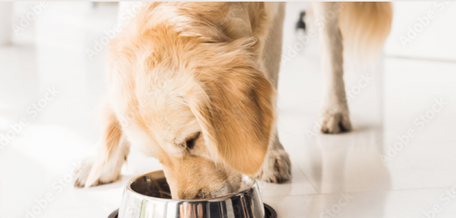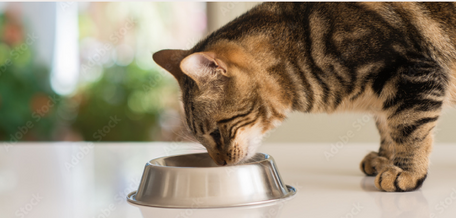As more pet owners turn to raw diets for their dogs, the importance of maintaining digestive health becomes clear. Probiotics play a vital role in ensuring that dogs on raw diets thrive, helping them digest their food and absorb essential nutrients. This guide will explore why probiotics for dogs are crucial, how they function, their benefits, and practical ways to include them in your dog's daily meals.
Key Takeaways
-
Probiotics are good bacteria that help dogs digest food and absorb nutrients better.
-
Raw diets can benefit from probiotics, especially for digestion and immune support.
-
Signs your dog may need probiotics include digestive issues, low energy, and skin problems.
-
Different types of probiotics, like Lactobacillus and Bifidobacterium, offer unique health benefits.
-
BJ's Raw Pet Food's Probiotics are specially designed for dogs on raw diets, ensuring high-quality gut health support.
Introduction
As the popularity of raw diets for dogs continues to rise, pet owners are learning that supporting digestive health is a key component for long-term success. This guide explains why probiotics are essential for dogs on a raw diet, covering how they work, their benefits, and the best ways to incorporate them into your dog’s daily routine.
Understanding Probiotics and Their Role in Canine Health

What Are Probiotics?
Probiotics are beneficial bacteria that live in your dog's gut. They help keep the digestive system healthy and support overall well-being. These good bacteria can be found in fermented foods and supplements, playing a vital role in your dog's health.
How Probiotics Work
Probiotics work by:
-
Balancing the gut microbiome, which is essential for digestion.
-
Improving nutrient absorption, ensuring your dog gets the most from their food.
-
Supporting the immune system, helping to fight off infections and diseases.
Did you know? About 80% of your dog's immune system is located in the gut, making probiotics crucial for their health.
Relevance to Raw Diets
Dogs on a raw diet often consume high levels of protein and natural ingredients. This can sometimes lead to digestive challenges. Probiotics can help:
-
Break down complex proteins and fats, making it easier for dogs to digest their food.
-
Reduce the risk of digestive issues, such as gas and bloating, which can occur during the transition to a raw diet.
-
Enhance overall gut health, ensuring your dog thrives on their raw food diet.
Incorporating probiotics into your dog's diet can lead to a happier, healthier pup!
Benefits of Probiotics for Dogs on a Raw Diet
1. Improved Digestion and Nutrient Absorption
Probiotics for dogs play a crucial role in breaking down complex proteins and fats found in raw food diet for dogs. This helps dogs absorb more nutrients, leading to better overall health.
-
Probiotics help digest food more efficiently.
-
They enhance nutrient absorption, ensuring your dog gets the most from their meals.
-
A balanced gut microbiome can reduce digestive issues.
2. Enhanced Immune System
A healthy gut is vital for a strong immune system. Probiotics help maintain a balanced gut microbiome, which is especially important for dogs on raw diets that may expose them to natural bacteria.
-
Probiotics support the production of antibodies.
-
They help crowd out harmful bacteria, reducing the risk of infections.
-
A robust gut health for dogs can lead to fewer illnesses.
3. Reduced Gas and Bloating
Transitioning to a raw diet can sometimes cause digestive discomfort. Probiotics can help mitigate these issues, making the switch easier for your dog.
-
They can reduce gas and bloating, leading to a happier pup.
-
Probiotics help regulate digestion, preventing discomfort.
-
A smoother transition to raw feeding can improve your dog's overall experience.
4. Better Stool Quality
Probiotics support digestive health, which can lead to firmer, more regular stools. This is a common goal for raw-fed dogs.
-
Healthy gut flora contributes to better stool consistency.
-
Regular stools indicate a well-functioning digestive system.
-
Improved stool quality can make clean-up easier for pet owners.
Probiotics are essential for dogs on a raw diet, as they not only improve digestion but also enhance overall well-being. Incorporating them into your dog's routine can lead to a happier, healthier life!
Key Types of Probiotics for Dogs and Their Unique Benefits
When it comes to probiotics for dogs, not all are created equal. Here are some key types that can make a real difference in your dog's health:
1. Lactobacillus
Lactobacillus is a powerhouse for digestion! This strain helps break down food and keeps harmful bacteria at bay. It’s often found in fermented foods and can be a great addition to your dog’s diet.
2. Bifidobacterium
Bifidobacterium plays a crucial role in maintaining gut balance. It helps reduce digestive issues like diarrhea and supports the immune system, making it essential for overall health.
3. Enterococcus
This strain is known for its ability to promote general gut health for dogs. Enterococcus helps prevent bad bacteria from settling in the intestines, ensuring your dog’s digestive system runs smoothly.
4. Saccharomyces boulardii (S. boulardii)
S. boulardii is a unique yeast-based probiotic that’s effective for tackling digestive disturbances. It’s especially useful for dogs experiencing diarrhea or other gut issues.
|
Probiotic Type |
Key Benefits |
|---|---|
|
Lactobacillus |
Aids digestion, inhibits harmful bacteria |
|
Bifidobacterium |
Reduces digestive issues, supports immunity |
|
Enterococcus |
Promotes gut health for dogs, prevents bad bacteria growth |
|
Saccharomyces boulardii |
Tackles digestive disturbances, helps with diarrhea |
Probiotics are not just natural dog supplements; they are vital for your dog's gut health and overall well-being. Choosing the right type can lead to a happier, healthier pup!
Signs Your Raw-Fed Dog May Need Probiotics
1. Digestive Issues
If your dog is experiencing gas, bloating, diarrhea, or constipation, it may be a sign that they need probiotics. These beneficial bacteria can help restore balance in the gut.
2. Lethargy or Low Energy Levels
A drop in your dog’s energy can indicate digestive problems. If they seem less active than usual, it might be time to consider probiotics to support their gut health.
3. Skin and Coat Issues
Sometimes, an unbalanced gut can show up as skin problems or a dull coat. If you notice these changes, probiotics could help improve their overall health.
4. Frequent Illness or Infections
If your dog gets sick often, it may be due to a weak immune system linked to gut health. Probiotics can help strengthen their defenses by balancing the gut microbiome.
Keeping an eye on these signs can help you take action early, ensuring your furry friend stays healthy and happy.
How to Introduce Probiotics into Raw Diet Food Diet for Dogs

Types of Probiotic Supplements
When it comes to adding probiotics to your dog's diet, there are several forms to consider:
-
Powders: Easy to mix with food.
-
Chews: Tasty treats that dogs love.
-
Liquids: Can be added to meals or given directly.
Dosage and Frequency
Start with a small amount and gradually increase it. Here’s a simple guideline based on your dog’s weight:
|
Dog Weight (lbs) |
Starting Dose |
Maximum Dose |
|---|---|---|
|
5-10 |
1/4 tsp |
1/2 tsp |
|
11-20 |
1/2 tsp |
1 tsp |
|
21-50 |
1 tsp |
2 tsp |
|
51+ |
2 tsp |
3 tsp |
Always consult your vet for personalized advice on dosing.
Incorporating Probiotics into Raw Meals
Mixing probiotics into raw food diet for dogs can be simple:
-
Combine with a small amount of goat milk for added flavor.
-
Use broth to make it more appealing.
-
Gradually mix it into their meals to help them adjust.
Adjusting the Diet Gradually
As you introduce probiotics, keep an eye on your dog’s response. If they show signs of discomfort, slow down the introduction.
Remember, a gradual approach helps your dog’s gut adapt without causing upset. This way, you can maximize the benefits of probiotics for their health!
Why BJ’s Probiotics are Perfect for Raw-Fed Dogs

BJ’s Raw Pet Food offers natural probiotic options that are specifically designed for dogs on a raw diet. These probiotics are made to work well with raw ingredients, ensuring your dog gets the best gut health support possible.
Quality Assurance
When it comes to your dog’s health, quality matters. BJ’s is committed to using high-quality ingredients, which is especially important for dogs on a raw diet. This commitment helps ensure that your dog receives the nutritional support they need for optimal digestion and overall health.
Additional Benefits with Raw Food Diet for Dogs
BJ’s probiotics don’t just stop at gut health. They also complement BJ’s other raw food options, creating a holistic approach to your dog’s nutrition. Here are some benefits:
-
Supports digestion: Helps break down raw food for better nutrient absorption.
-
Boosts immunity: A balanced gut microbiome strengthens your dog’s immune system.
-
Improves stool quality: Probiotics can lead to firmer, more regular stools.
By choosing BJ’s probiotics, you’re not just feeding your dog; you’re investing in their health and happiness. With the right support, your raw-fed dog can thrive!
Additional Tips for Supporting Gut Health in Raw-Fed Dogs
1. Rotating Proteins
Mixing up protein sources is key! This helps maintain a diverse gut microbiome, which is essential for optimal dog digestion health. Here are some protein options to consider:
-
Chicken
-
Beef
-
Fish
-
Lamb
-
Turkey
2. Including Fermented Foods
Adding raw, fermented foods can naturally boost gut health for dogs. Consider these options:
-
Goat milk
-
Kefir
-
Fermented vegetables (like sauerkraut)
3. Regular Exercise and Hydration
Keeping your dog active and well-hydrated supports a healthy gut environment. Make sure to:
-
Take daily walks
-
Provide fresh water at all times
-
Engage in playtime to keep them active
Supporting your dog's gut health is a journey. By rotating proteins, including natural dog supplements like fermented foods, and ensuring regular exercise, you can help your furry friend thrive on a raw food diet for dogs.
Conclusion
Probiotics are vital for raw-fed dogs, enhancing their digestion, immunity, and overall health. By incorporating these beneficial bacteria into your dog's diet, you can help them thrive on a raw food regimen.
Encourage your furry friends to experience the benefits of probiotics by trying BJ’s probiotic natural dog supplements. Explore BJ’s blog for more tips and resources on maintaining a healthy raw diet for your beloved pet.
In conclusion, if you want the best for your furry friends, visit our website today! Discover a variety of healthy raw food options that will keep your pets happy and thriving. Don't wait—give your pets the nutrition they deserve!
Frequently Asked Questions
What are probiotics and why are they important for dogs?
Probiotics are good bacteria that help keep your dog's gut healthy. They are important because they help with digestion, keep the immune system strong, and can improve overall health.
How can I tell if my dog needs probiotics?
If your dog has tummy troubles like gas, bloating, or diarrhea, or seems tired and less active, they might need probiotics to help balance their gut.
What types of probiotics are best for dogs on a raw diet?
Some good types of probiotics for dogs include Lactobacillus, Bifidobacterium, and Saccharomyces boulardii. These help with digestion and keeping harmful bacteria away.
How do I add probiotics to my dog's diet?
You can add probiotics to your dog's food in different forms, like powders, chews, or liquids. Make sure to follow the instructions for the right amount.
Are BJ’s probiotics safe for my dog?
Yes! BJ’s probiotics are made with natural ingredients and are designed to work well with raw diets, making them a great choice for your dog's gut health.
Can I mix probiotics with my dog's food?
Absolutely! You can mix probiotics with your dog's raw food to help improve their digestion and overall health.




















